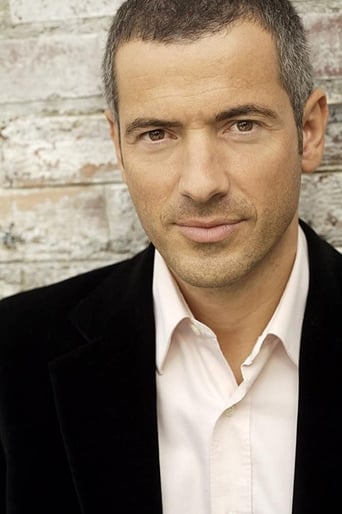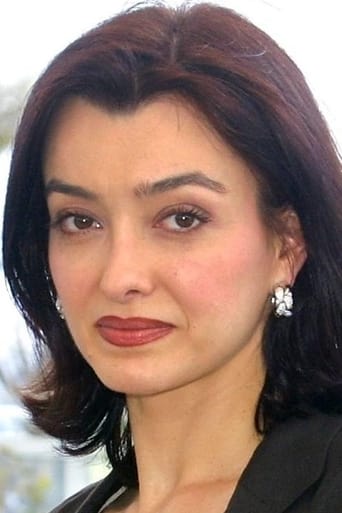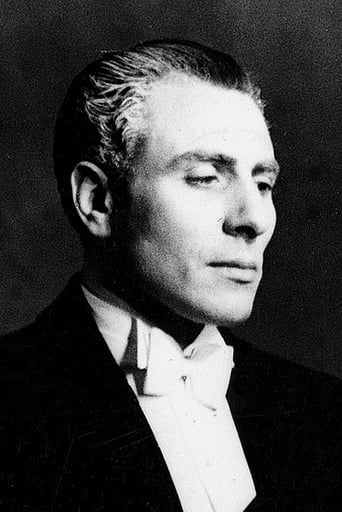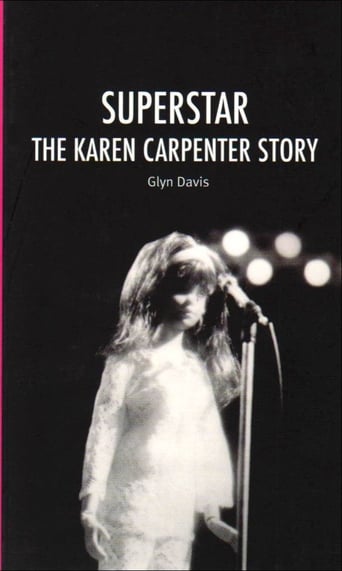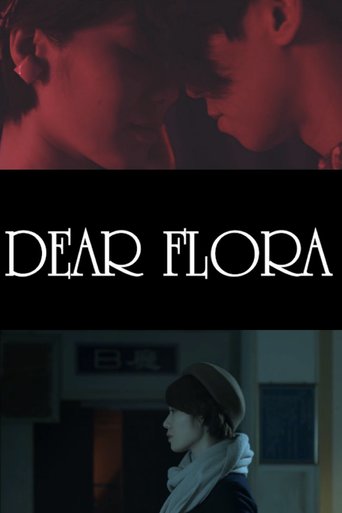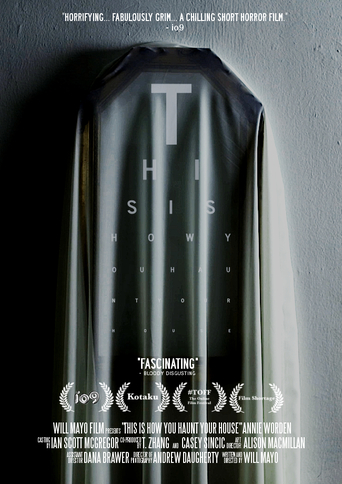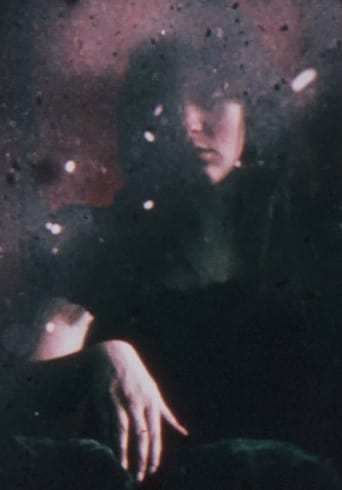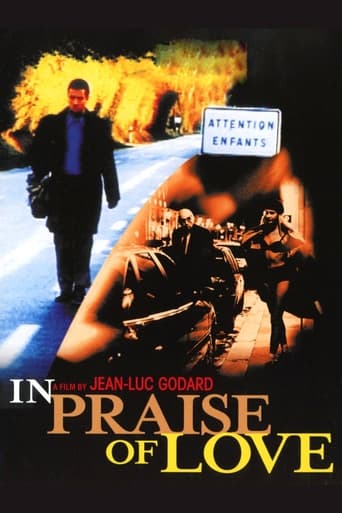
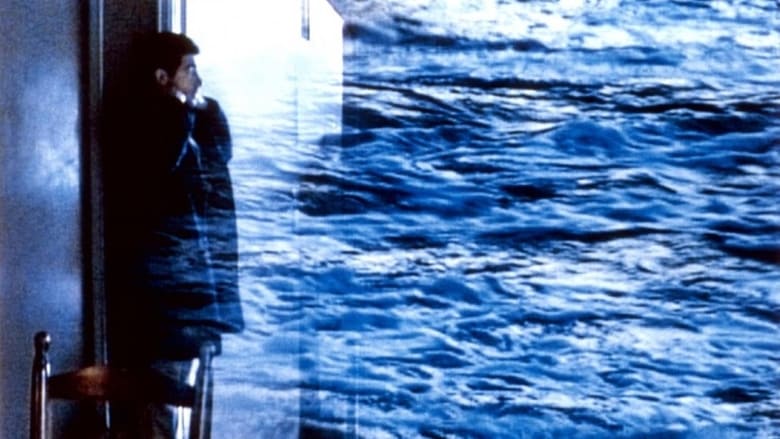
In Praise of Love (2001)
Someone we hear talking - but whom we do not see - speaks of a project which describes the four key moments of love: meeting, physical passion, arguments/separation and making up. This project is to be told through three couples: young, adult and old. We do not know if the project is for a play, a film, a novel or an opera. The author of the project is always accompanied by a kind of servant. Meanwhile, two years earlier, an American civil servant meets with an elderly French couple who had fought in the Resistance during World War II, brokering a deal with a Hollywood director to buy the rights to tell their story. The members of the old couple's family discuss heatedly questions of nation, memory and history.
Watch Trailer
Cast
Similar titles
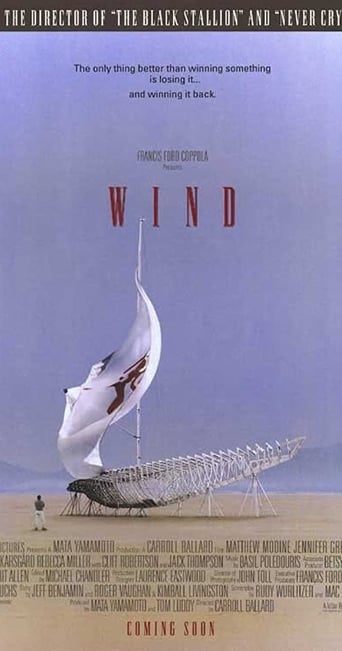
Reviews
Best movie ever!
Not sure how, but this is easily one of the best movies all summer. Multiple levels of funny, never takes itself seriously, super colorful, and creative.
A great movie, one of the best of this year. There was a bit of confusion at one point in the plot, but nothing serious.
It's a feast for the eyes. But what really makes this dramedy work is the acting.
Jean Luc-Goddard's film is so unlike a conventional plot-driven movie that it is hard to imagine how he conceived it. You almost imagine that he started out by making a conventional movie, got stuck, and so chopped up the footage into a thousand pieces, which he then redistributed at random. In fact, the mood of the piece is far too carefully controlled for the film to have been made in this way, but it is a confusing mix: half shot in black-and-white, half in a vivid colour (altohugh it's hard to correlate the style of cinematography to a time-frame within the story), the face of some of the characters is deliberately not shown, and a fragmentary story about Catholics in the French resistance and the attempts, sixty years later, to make a film about this, is interspersed with lengthy philosophical meditations from the characters. What can be said is that the images and music are tied in perfectly, the words hold a certain interest (although there is a degree of pretension in them), but the narrative as a whole never coalesces. What's left is like a master's primer in how to create an atmosphere in film; intriguing, but not wholly satisfying as an end in itself.
Edgar is a director trying to pull together a project around the subject of love. While drawing it up the author meets a young woman he once knew very well and he spends time with her again while jumping through the various funding and organisational hoops. In the second part of the film we skip backwards two years to the point where the author originally met the woman. At this point in his life he is representing Hollywood and is in the process of purchasing the rights to the story of the girl's grandparents, who ere in the resistance during the majority of World War II.There's one thing to be said for Godard and that's that you can be fairly confident he isn't going to be directing the next Harry Potter film as this 2001 movie shows he is as difficult and rewarding as he could be. The first half of the film is in black and white, while the second is in blistering digital colour. If my plot summary suggests a total cohesion then forget it the suggested connection with a romance is more from my summary than the actual film. Instead what we have is free flowing dialogue that covers issues around America, art, love, age, humanity and so on it is difficult to get into but it is worth trying. The dialogue is rather pretentious and too 'deep' to be natural or realistic but it still engages the brain in a way that kept me interested even if I struggled to get into narrative or characters, or to really agree with much of what was being said. I say it is worth trying but I would suggest that this makes it a weak film by the standards of more linear films and should be seen as more of an experience than a story or 'normal' film.Matching this, the direction is both hypnotic and off-putting. Shots are framed in very arty ways with the characters in shadow, out of focus, out of shot etc for much of the film; the b&w section is crisp and feels older than it is, while the colour section is startling in its intensity. Again all this has the dual effect of coming across as rather pretentious and overly arty but then also being interesting enough and imaginative enough to keep you watching. Of course many audiences will be put off, and rightly so because not even once does this film take a step towards the audience to help us out instead it pitches its tent and simply says that we can take it or leave it. In my own 'difficult' style, I managed to do both and found the film as frustrating and alienating as I did interesting and involving. The cast are hard to judge because they are rather stilted and cold throughout, but none of them really give anything that could be described as a poor performance.Overall this is a strange film and one that is worth a try and worth sticking at for what it does well. However this is not as simple as it should have been and the film does very little to help the audience keep involved and interested. Visually it is true art-house stuff but yet is also great to look at starkly beautiful or weirdly colourful; meanwhile the dialogue is unnatural and pretentious but yet still interesting and thoughtful. A strange mix but one that is worth a try.
This film was incredibly slow and boring! It attempted to ask profound and deep questions to stimulate the audience, however, it failed! I spent the majority of my time checking my laptop to see how much time had elapsed whilst praying the film would hurry up and end. There is no identifiable major plot. However, if I was forced to define the plot I would say it was about a man who was looking to fill a role in his "project" (film). He thought he knew the perfect woman but she wasn't all he thought she'd be. Most probably because he didn't know her at all, he'd met her 2 years ago and they'd spoken for approximately 10 minutes.Although I completely hated this film, it did start well. It is so beautifully shot you can't help but stare at the screen. Every shot is like a beautiful photograph. The first half is in black and white and has a lot of frames are close-ups of faces and shots that resemble photographs. Goddard also experiments with light and dark and entraps some amazing moments such as the movement of water (I think a river) as a light shines on it. However, this does get a bit boring, as some shots seem a bit pointless and unrelated to the dialogue or "plot".The colour shots were HIDEOUS and looked as thought the film had been dyed to heighten the colour. This was unnecessary and UGLY!I think Goddard's talents are wasted on movies he missed his calling and should have been a photographer.Don't watch this film. If your going to ignore my advice only watch the first half and switch it off when it changes to colour.
I have seen countless French films. And I will continue to watch Gallic productions but this filmed train wreck has me matching the reviews shown in the critics section. This production is awful and that is stating it mildly. The cinema going public will be forever in the debt of director Jean-Luc Godard. He, along with Trauffaut and others created the groundbreaking French New Wave film movement in the early 1960s starting with Breathless', which is still evident in movies of today. But now he is just a desiccated old man riding on his fading legend, having his own little private in-joke that slaps our heads for being such ignorant rubes, especially Americans for buying other people's memories because we as a nation do not have any. Godard might be irate that Hollywood has taken over the world's cineplexes. But what is the competition? This mish-mash artifice and criticism of art in its different forms just wanders in and out of scenes with various characters that can never be identified or truly identified with unless they have a sourpuss personality. There are pointless pontifications that have no connection to anything resembling a storyline with a historical fact cited to give it some kind of legitimacy. And what was Jean-Luc saying by placing numerous scenes near and by water? Was he saying that mankind was drowning in its own moral morass or was Godard confessing that he had no possible clue how to show this impenetrable story, so he substituted by having the audience ponder the gentle ebb and sometimes clashing waves as a reflection into our own souls. Amazingly, there is one item that does stand out in a positive fashion: the black-and-white cinematography in the first half of the movie. The night and early morning shots with their black recesses, sharpened figures and darkened foreground remind me of Brassaï photographs of the City of Light' before the Second World War. The ambiance evokes that warm feeling toward Paris as Woody Allen does about New York City in Manhatten'. But in the end, cynicism wins out and so Godard uses the writer as a substitute to sum up his viewpoint in an existentialist manner that could have been written by Albert Camus. Jean-Luc should have been more honest like the movie director-character in that other debacle about why the French film industry is in decline, Irma Vep'. `F*** the audience. They will see what I want them to see.' In Praise Of Love' is a perfect example of that edict.
